Isle of Wight sea eagles: Police investigate third bird death
- Published
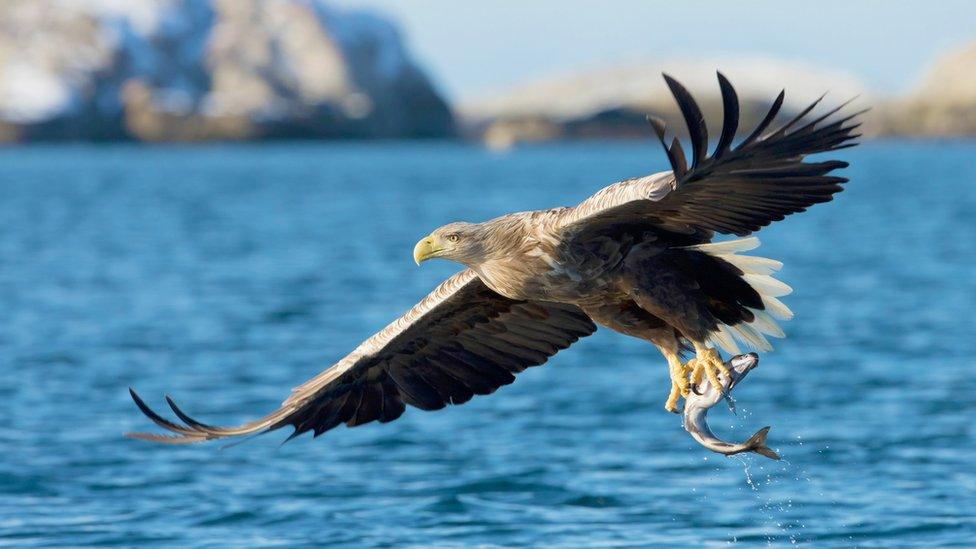
The birds, which have a wingspan of up to 2.5m (8ft), had not been recorded in England since 1780
The death of a sea eagle, from a group reintroduced on the Isle of Wight, is being investigated by police.
Hampshire Constabulary said a dead eagle was reported on Bowcombe Road, on the island, on 24 February .
It comes as Dorset Police continues to investigate the deaths of two other white-tailed eagles that were found in January.
The latest death is not being linked to any other investigations, the Hampshire force said.
Avian flu
The birds are part of an ongoing conservation project, run by Forestry England and the Roy Dennis Wildlife Foundation.
In a joint statement, they said: "Circumstances surrounding the sudden death of the bird are being investigated by Hampshire police and partners.
"During a post-mortem examination it has been identified that the bird was carrying avian influenza, although it is unknown at this stage if this related to the bird's death and inquiries are continuing."
The birds are all fitted with GPS tracking devices, allowing their flight paths to be monitored.
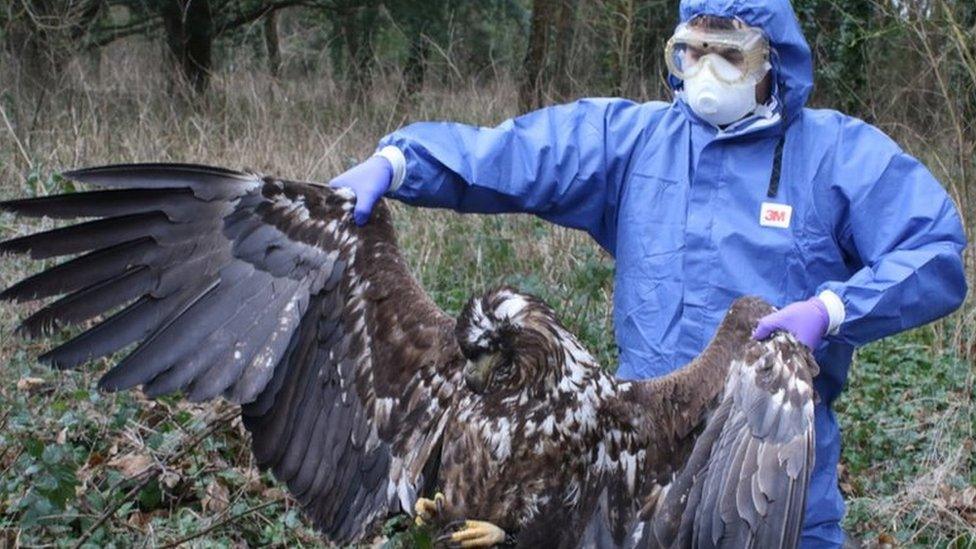
A young sea eagle was previously found dead in Dorset
Following the deaths in January, one of which was in Dorset, Dorset West MP Chris Loder said police should not spend time and resources on such an investigation.
He added Dorset was "not the place for eagles to be reintroduced".
His comments were described as "sinister" by TV naturalist Chris Packham.
The project started in 2019 and sees at least six birds released annually on the Isle of Wight.
Data from the trackers has shown they explore widely, making flights of more than 100 miles (160km).
In England, they have flown as far as Norfolk and North Yorkshire, some have made journeys as far as France, the Netherlands, Germany and Denmark.
Many of them return to the island after their travels.
The Isle of Wight was chosen to reintroduce white-tailed eagles, also known as sea eagles, as it offers an ideal habitat with plenty of fish in its surrounding waters for them to feed on.
They are the UK's largest bird of prey, with a wingspan of up to 8ft (2.5m).

Follow BBC South on Facebook, external, Twitter, external, or Instagram, external. Send your story ideas to south.newsonline@bbc.co.uk, external.
Related topics
- Published10 February 2022

- Published2 September 2021
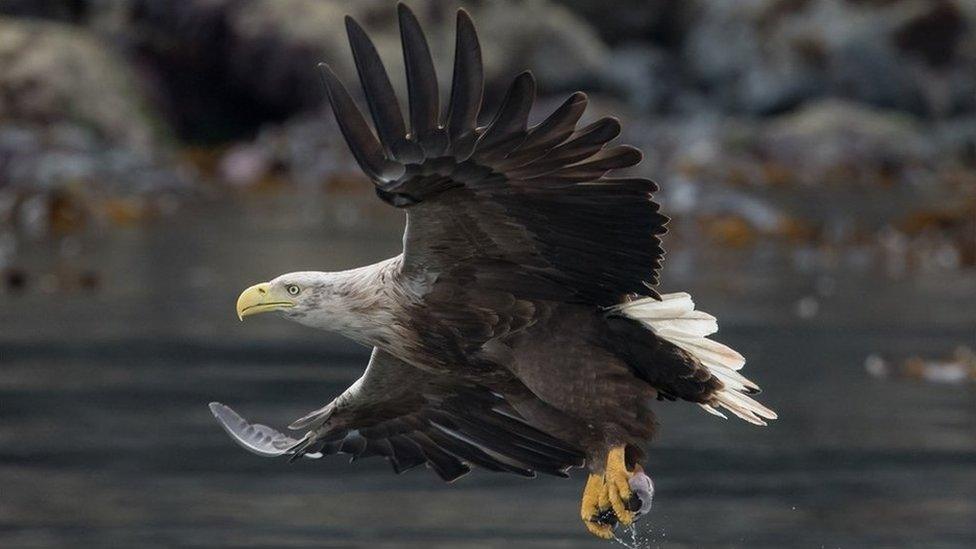
- Published10 May 2021
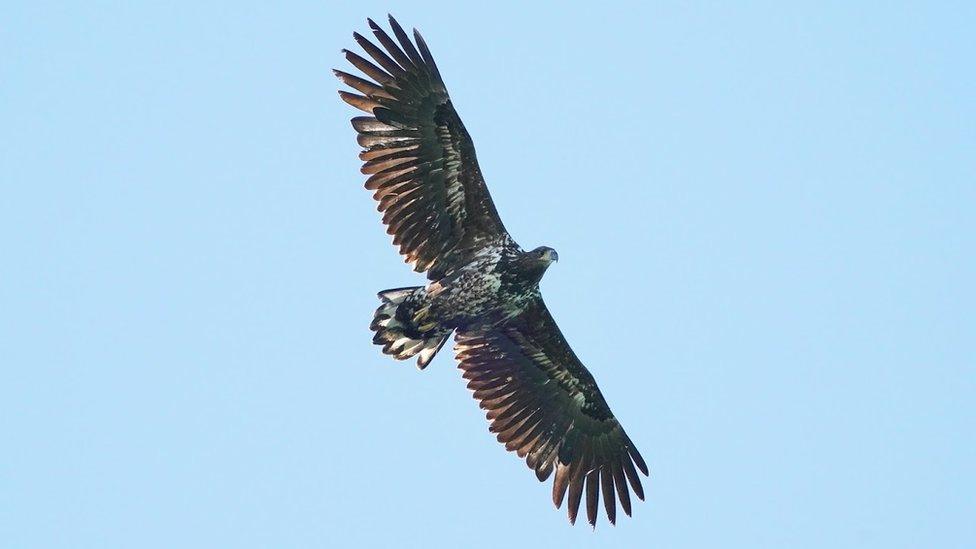
- Published7 April 2021

- Published9 February 2021

- Published4 May 2020

- Published18 January 2020
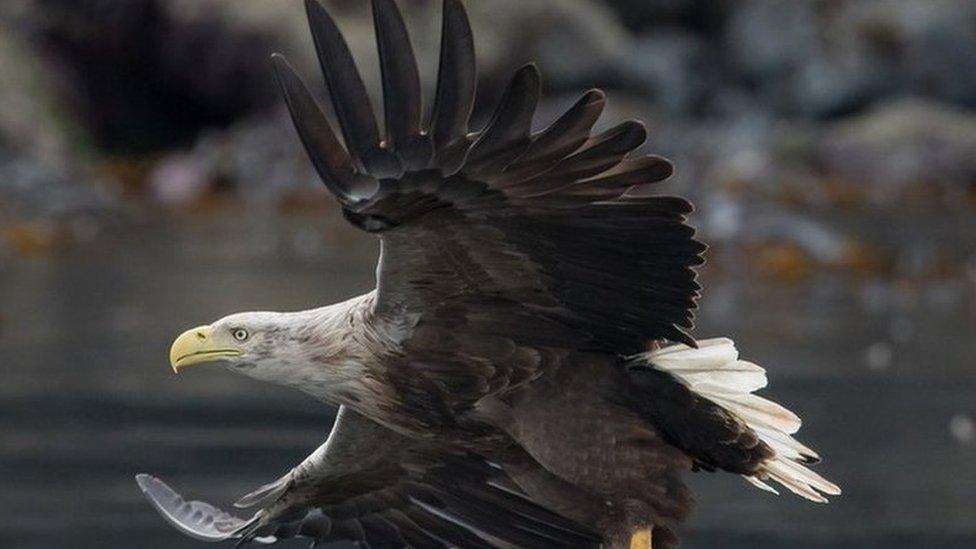
- Published24 October 2019
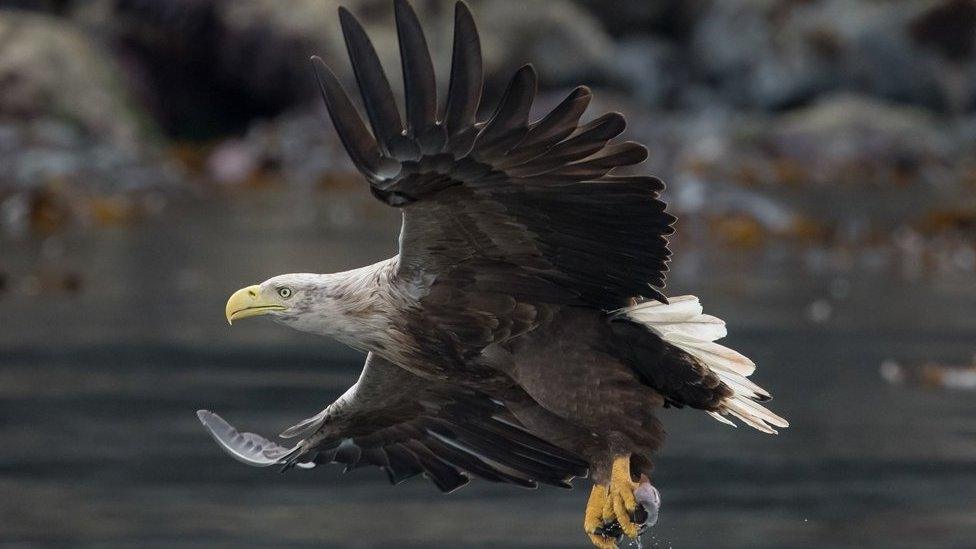
- Published22 August 2019

- Published3 April 2019
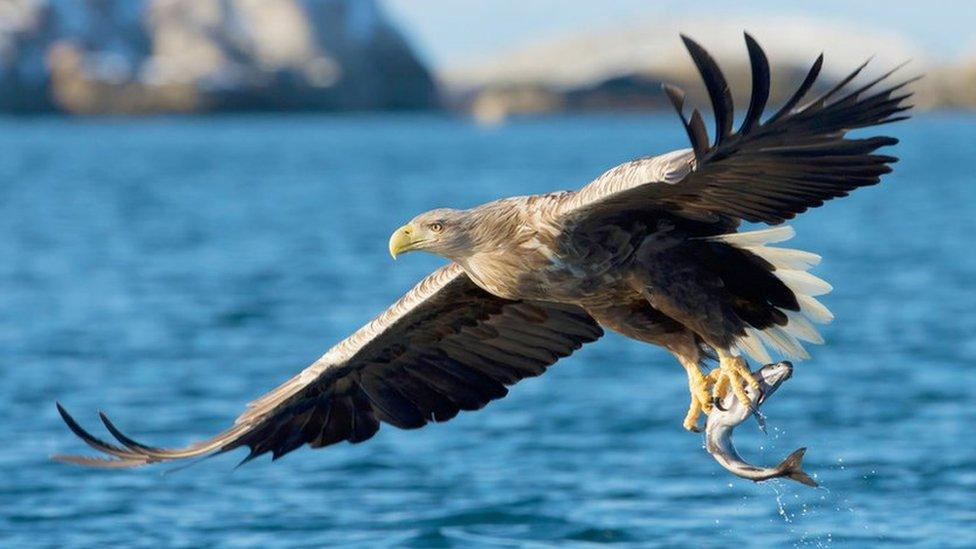
- Published2 April 2019
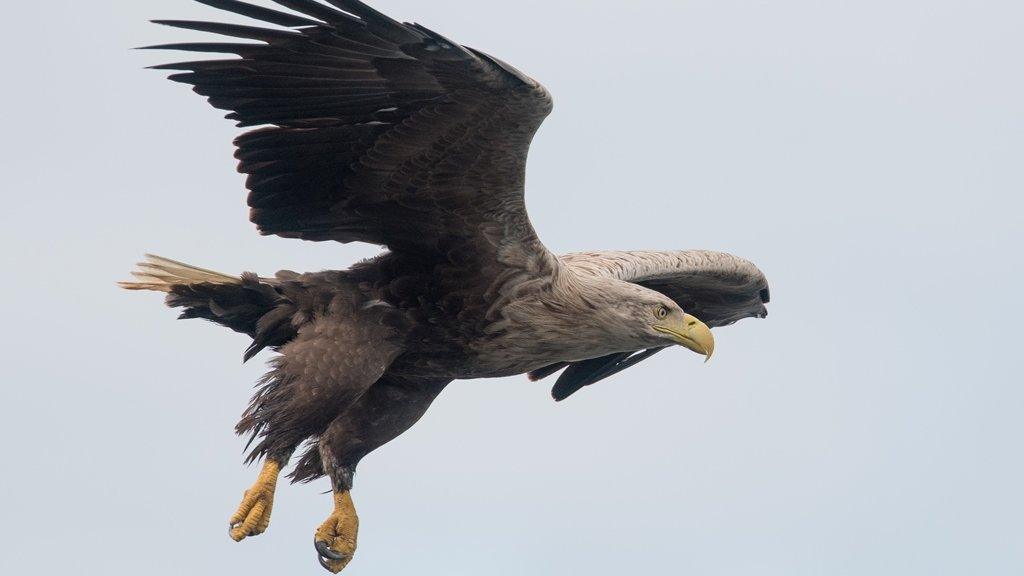
- Published20 November 2018
